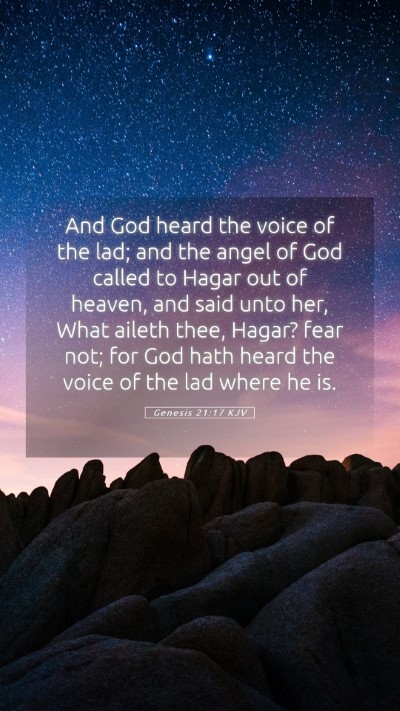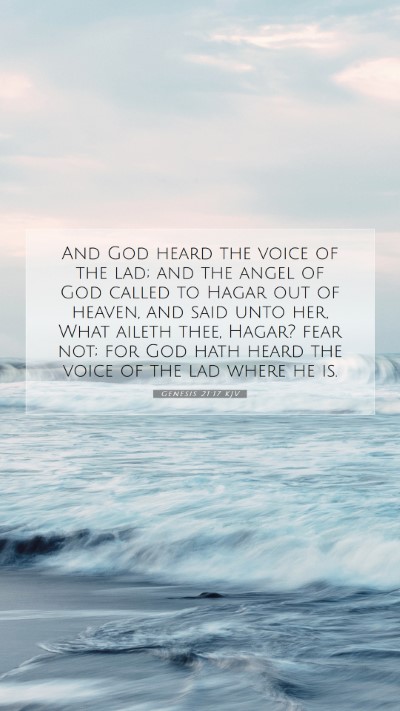Bible Verse Commentary: Genesis 21:17
Verse: "And God heard the voice of the lad; and the angel of God called to Hagar out of heaven, and said unto her, What ails thee, Hagar? fear not; for God hath heard the voice of the lad where he is."
Summary of Insights
This verse carries profound significance in the narrative of Hagar and her son, Ishmael. It showcases God's mercy and attentiveness to the plight of the vulnerable, particularly highlighting the relationship between divine hearing and the human experience of distress. Through the comments from notable commentators such as Matthew Henry, Albert Barnes, and Adam Clarke, we derive a deeper understanding of this moment and its broader implications.
Context and Meaning
- God's Compassion: As Matthew Henry points out, this passage underscores God's compassion towards those who are in desperate situations. Hagar, who felt abandoned, receives reassurance that her and her son's cries do not go unheard.
- Divine Communication: Albert Barnes notes the significance of the angelic intervention, suggesting that it illustrates God's ongoing communication with humanity, especially those suffering. This represents God’s ability to reach out to individuals at their most vulnerable moments.
- Hope and Deliverance: Adam Clarke emphasizes the hope offered through divine intervention, indicating that despite dire circumstances, God’s help is timely and available. The promise of God hearing the lad's voice provides assurance of future provision.
Theological Implications
The theological undertones of this passage suggest a God who values all lives, regardless of social status or circumstances. It invites reflection on God's active role in our lives, particularly how He responds to our prayers and cries for help.
Application to Daily Life
This verse encourages believers to recognize that no situation is too bleak for God, encouraging faith that God listens and responds to our cries. It provides comfort when facing life’s challenges, suggesting that divine help comes when we need it most.
Cross References
- Genesis 16:7-13: The earlier encounter of Hagar with the angel of the Lord, indicating God's prior awareness of her suffering.
- Exodus 3:7: God hears the cries of the Israelites in captivity, reinforcing the theme of divine responsiveness to human hardship.
- Psalms 34:17: "The righteous cry, and the Lord hears, and delivers them out of all their troubles," reaffirming God's help in times of distress.
Conclusion
The verse Genesis 21:17 is a rich source for Bible verse interpretations and Bible verse commentary, guiding us to understand God's nature as compassionate and attentive. As we study this scripture, we can embrace the assurance that God is responsive to our needs, encouraging deeper Bible study insights and personal reflections on how we interpret the divine presence in our lives.


